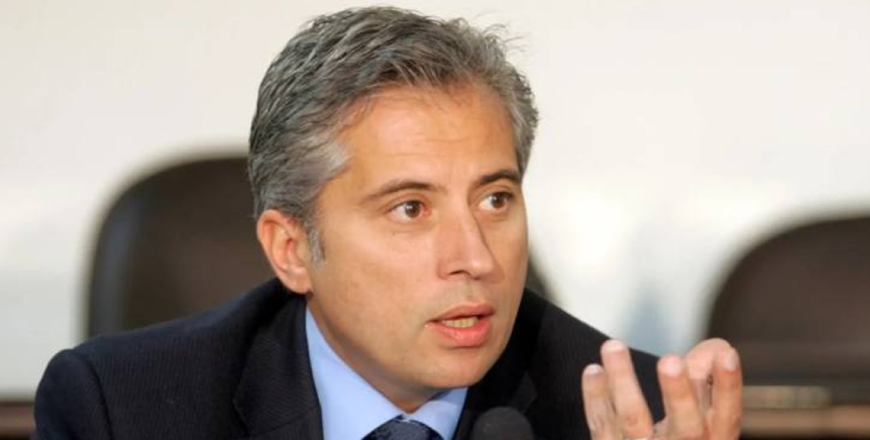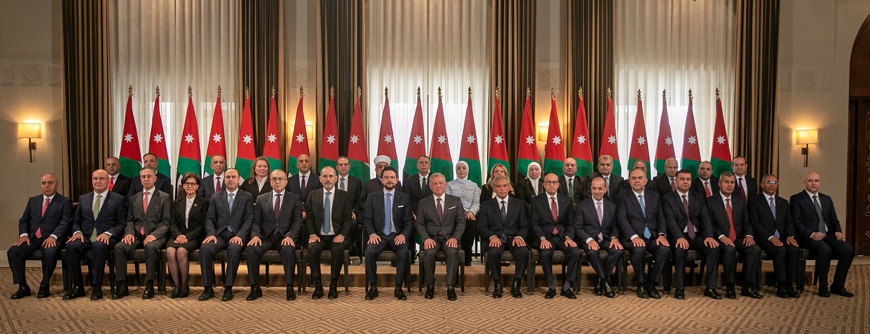You are here
50% of Jordanians confident in Hassan’s Cabinet - survey
By JT - Oct 06,2024 - Last updated at Oct 06,2024

Jafar Hassan
AMMAN — The University of Jordan's Centre for Strategic Studies (CSS) announced on Sunday the results of a survey, titled "The Formation of Prime Minister Jafar Hassan's Government and the Parliamentary Elections Survey."
This survey offered insights into Jordanians' perceptions of Hassan's Cabinet, highlighting a significant level of optimism and trust in the new cabinet, with half of the national sample expressing confidence in his Cabinet.
According to the survey, 50 per cent of Jordanians trust the government, while 48 per cent of opinion leaders and experts share the sentiment.
The survey also said that 43 per cent of opinion leaders feel optimistic about the cabinet's potential. When it comes to implementing key reforms, 47 per cent of the national sample and 40 per cent of opinion leaders believe the government is capable of enacting political reforms, modernising the economy, and executing a public sector reform plan.
Regarding the government's ability to manage regional issues, 47 per cent of the national sample and 41 per cent of opinion leaders expressed confidence in Hassan's government.
Additionally, 46 per cent of the national sample and 38 per cent of opinion leaders have a positive outlook on the Jordanian economy under his administration.
The survey also examined perceptions of the government's capability to face upcoming challenges. Results showed that 54 per cent of the national sample believes that the government can handle these responsibilities, while 57 per cent of respondents feel confident in the prime minister's ability to do so.
The report also said that 50 per cent of respondents believe that the government, excluding the prime minister, is equipped to manage these challenges.
In terms of priorities, 66 per cent of the national sample highlighted the importance of improving economic and living conditions for Jordanians, emphasising the need to reduce poverty and address unemployment.
Regarding trust in public institutions, 97 per cent of respondents expressed confidence in the army and security institutions. There has also been an increase in trust in official institutions; trust in the Integrity and Anti-Corruption Commission has risen from 40 per cent in March 2021 to 73 per cent in this survey, while confidence in the Jordanian judiciary has grown from 59 per cent to 72 per cent.
Moreover, 35 per cent of Jordanians reported trusting the parliament, a rise from 20 per cent in March 2021, and trust in political parties has increased from 15 per cent to 32 per cent.
Regarding the parliamentary elections, 73 per cent of participants deemed them fair and transparent.
Furthermore, 71 per cent of the national sample and 66 per cent of opinion leaders expressed satisfaction with the election results, while 61 per cent of the national sample and 67 per cent of opinion leaders were not surprised by the outcomes.
The survey also assessed the performance of political parties, reporting that 65 per cent of the national sample believes they succeeded in the recent elections.
However, opinions diverge on whether the newly elected parliament will perform better than its predecessor, with 38 per cent of the national sample believing it will and 46 per cent saying that there will be no significant difference.
When examining the anticipated relationship between the new parliament and government, 38 per cent of the national sample believes it will be cooperative, while 21 per cent foresee a contentious relationship marked by disagreements on various issues.
Related Articles
AMMAN — A poll conducted by the Centre for Strategic Studies at the University of Jordan revealed an increase in public and opinion le
AMMAN — Jordanians are less optimistic about the direction of their country than they were in September, but optimists remain a majority, ac













